Volbeat's Rob Caggiano: my top 6 tips for guitarists
"I always try to treat my solos like a song within a song - I want to take you somewhere with it"
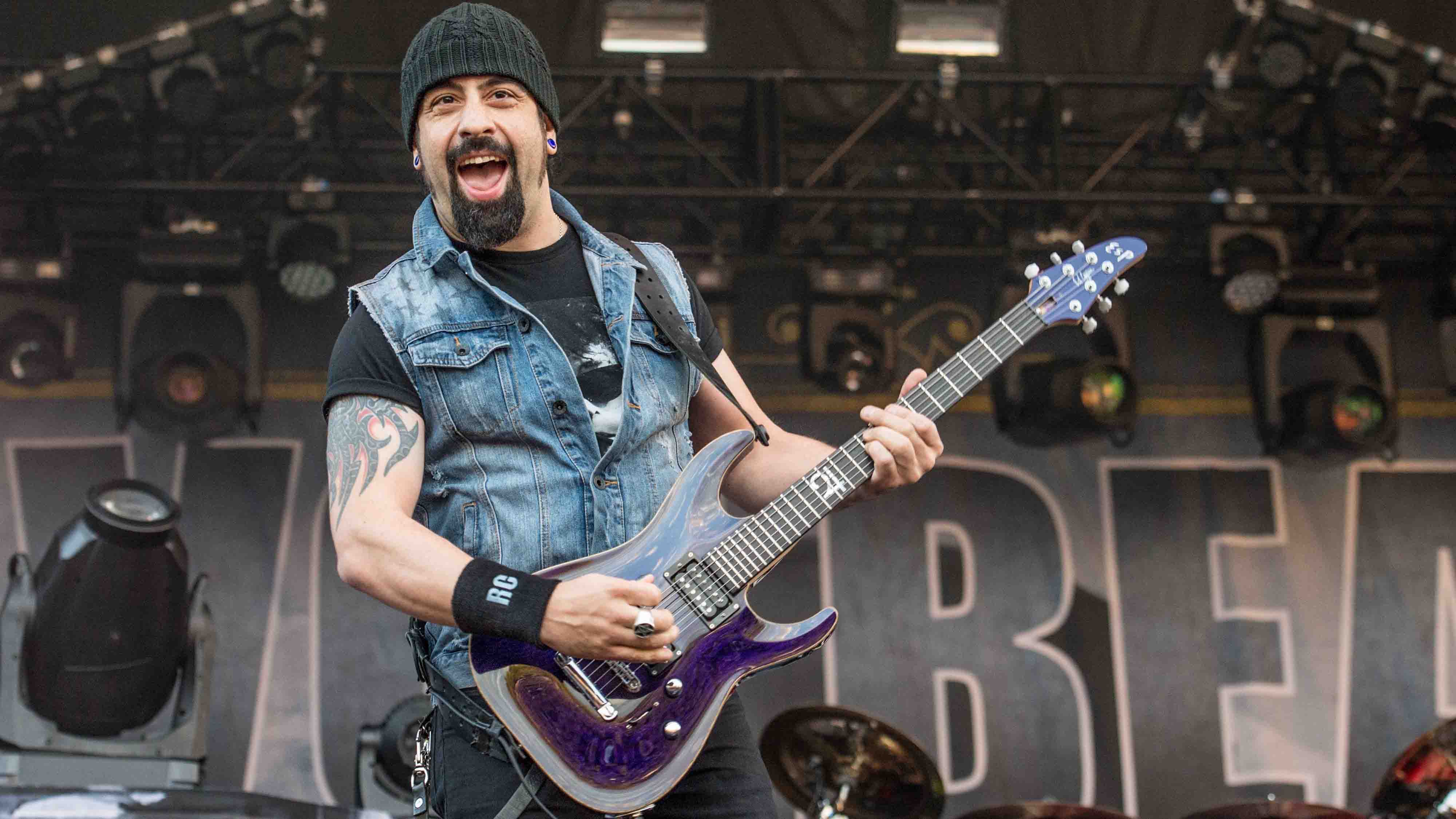
Introduction: Seal The Deal & Let's Boogie
Last time multi-platinum-selling Danish metallers Volbeat made a record, they found their new lead guitarist in producer Rob Caggiano, who had recently parted ways with American thrash legends Anthrax.
This time round, they had three years for the new line-up to solidify - you can hear it in the 53 minutes that make up sixth record Seal The Deal & Let's Boogie. MusicRadar meets Caggiano at his hotel in central London to find out more about their latest offering, born of a transatlantic band relationship…
“Now having been in the band for a while, we all know each other a lot better - there’s a level of comfort,” admits the New York native.
“I was there from the beginning, the pre-production and writing process. We spent a lot of time in the rehearsal room on this one, to make sure we had the best batch of songs with all the right parts.
“I ended up demoing a bunch of things on a recording rig at the hotel while I was out there, which is something I don’t think Volbeat had done before. It’s helpful in the sense that you can actually realise an idea - it might not be the finished version, but you can see if the arrangement works, if the tempo is right, all the little details that, in my opinion, make a huge difference.”
As for the 3,843 miles between him and his Danish bandmates, it’s nothing too stressful in this day and age (“flying to London is basically the same as flying to LA”), though the guitarist has been growing more and more tempted to close the distance by basing himself in the UK capital, a mere 100 minutes away from their Copenhagen HQ.
We spent a lot of time in the rehearsal room on this one, to make sure we had the best batch of songs
Right now, they’re in the middle of the European festival season, which will keep them busy until their US tour with Killswitch Engage kicks off in August. When asked what he’s been listening to most recently on his travels, surrounded by purple carpet and chairs in a purple room, the guitarist - who has his own line of purple ESP axes - replies with a most fitting answer indeed…
“I’m on this massive Prince trip at the moment,” says Caggiano. “I was so bummed about that news.
“If you haven’t seen the footage of him doing While My Guitar Gently Weeps at the 2004 Rock and Roll Hall Of Fame, you need to get on it right now. To me, his playing in that destroys everyone. It’s the most insane fucking guitar solo there is - up there with Hendrix and Van Halen. It might even be better! It’s so moving, inspired and off-the-cuff. It’s just perfect.”
Here, the musician/producer gives up his tips to becoming a better guitarist…
Seal The Deal & Let's Boogie is out now via Universal.
Don't Miss
Rob Caggiano on leaving Anthrax and finding his voice with Volbeat
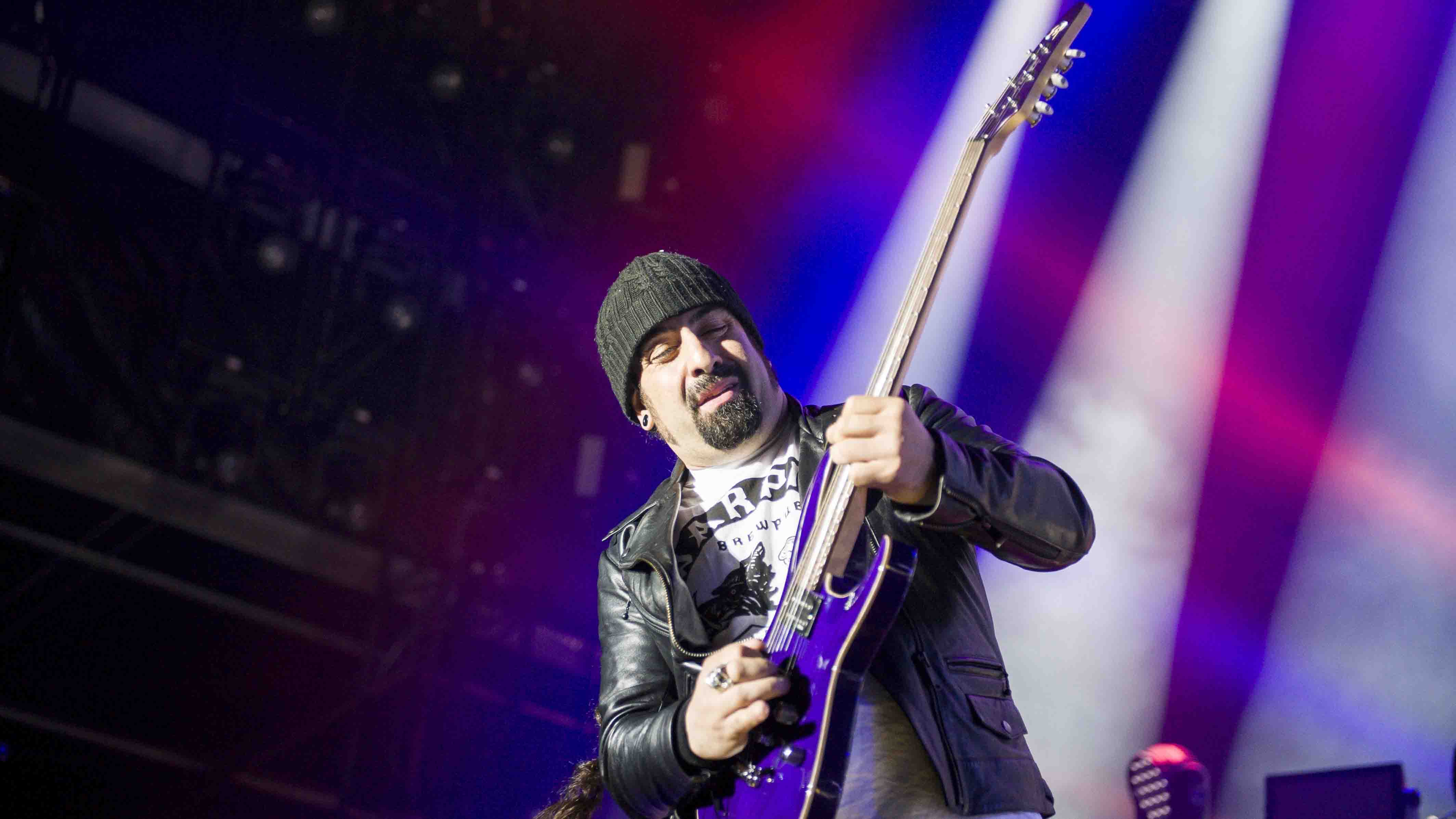
1. Pick up some drumsticks
“Young guitar players ask me for tips and advice to get better, and a lot of the times I’ll tell them, ‘Pick up some drumsticks!’ Or maybe a bass guitar, learn how they think for a little bit. I always dabbled with everything growing up. I can play drums, bass, keys, whatever I need to make the ideas come out.
“I find thinking like a drummer or bassist is invaluable, it will make you a stronger musician. Think in terms of the big picture and how everything comes together rhythmically and melodically. Try to have something to say on your instrument - anyone can sit there blowing licks, chops flying, blazing up and down.
“The main message here is play with as many musicians as possible - especially drummers. If you’re an up-and-coming guitar player, try and find other people in a similar position. Your clock is going to get a lot stronger; your inner sense will improve with that, too.
Try to have something to say on your instrument - anyone can sit there blowing licks
“I actually started out on drums as a kid and still do to this day. I’m always looking for the big picture: what can I do that will enhance what he’s doing? Have a strong concept of how others think if you take music seriously.
“Some of the best guitarists of all time were also drummers. Eddie Van Halen started out on drums. I was at [Pantera drummer] Vinnie Paul’s house once, and he told me Dimebag was a great drummer! Prince is one of the best guitar players of all time in my opinion, because he was a master of all instruments.”
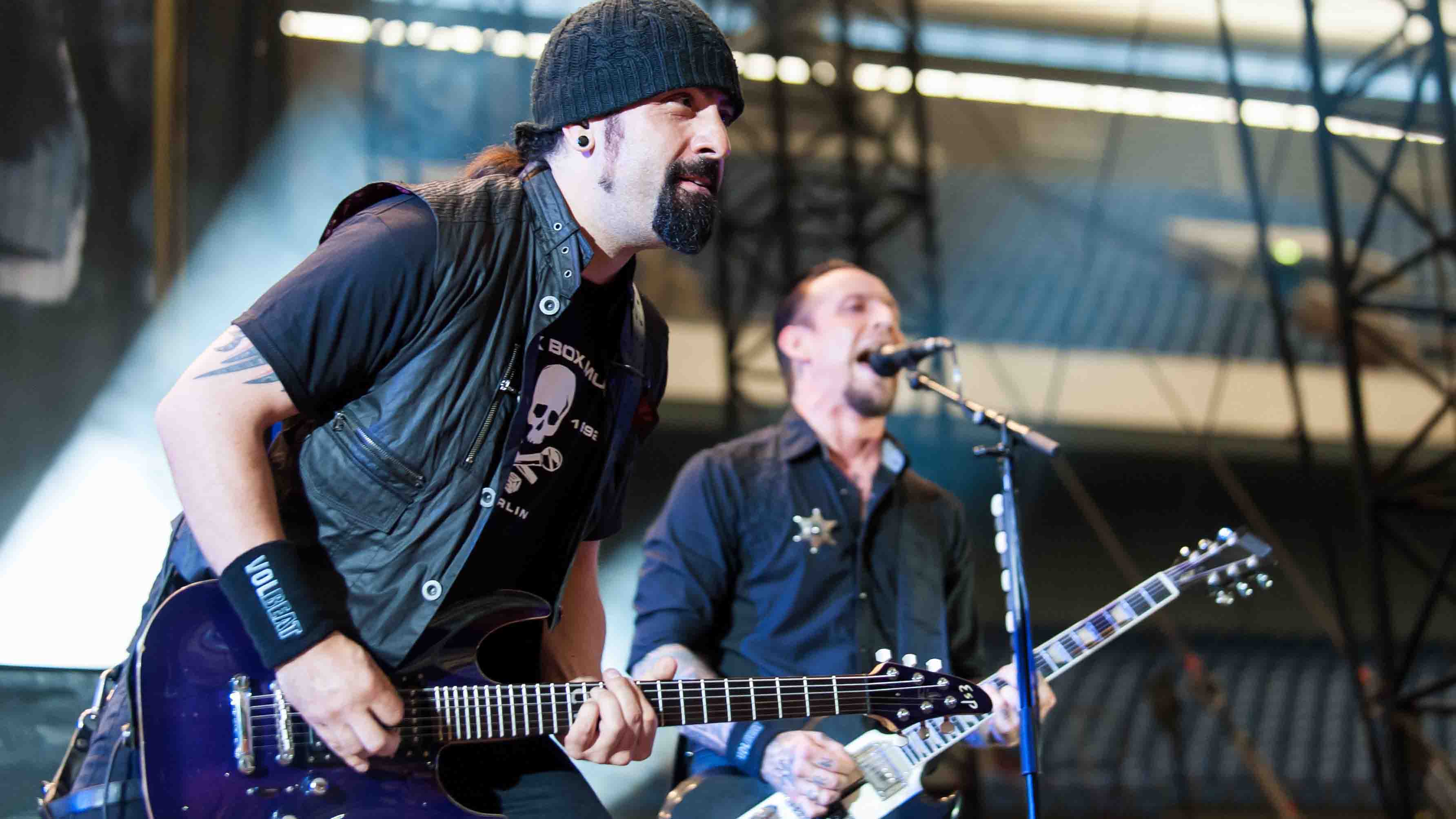
2. Don't get hung up on theory
“I’m not saying it’s a bad thing - of course there’s a place for it. But what do you want to do as a guitar player? If you want to be a jazz or fusion guy, you need to be on-point with that stuff. If you’re a rock guy, it might help you, but I always found it stifling.
“Try to be as musical as possible, rather than as technical as possible. I always try to treat my solos like a song within a song - I want to take you somewhere with it. Otherwise, what’s the point?
“If at the end of the song you can’t remember any of the licks or phrases in the solo, you need to start over. Almost treat them like a vocal. And I actually do - even in the recording chain, I treat give them the same treatment, into a mic pre-amp, into the compressor. I want it to speak like a vocal. David Gilmour is the king of that. Listen to the solo in Comfortable Numb… it’s mindblowing. He’s one of my favourite players, for sure.”
If at the end of the song you can’t remember any of the licks or phrases in the solo, you need to start over
“I’m not a music theory guy. I went to Berklee in Boston, which is an amazing music college, and anyone that knew me back then will vouch for this: I never turned up to class!
“Growing up in New York, it was so difficult to find other players to jam with - people that were on the same page as me and wanted to do it on a serious level. So I went to school purely to meet players… and I did! I just never went to class or returned books to the library!”

3. Embrace your own individuality
“What’s going to make you special in a sea of a billion other guitar players? One thing is your sound - finding your unique tone is really important.
“I’m also a firm believer that most of your sound comes from your fingers, but that comes over time. The more you play, the more you’ll develop that. But know your tone and be consistent with it; whatever amp or pedals you use, make it as unique to you as humanly possible.
“If you want to be a serious guitar player in a serious touring band, if you want longevity in any way, you have to have your own sound and style. If you don’t, you’ll just get lost in the shuffle. There are so many guitar players out there. What separates an amazing shredder on YouTube from the guy headlining Wembley?
“Getting your sound is also a lifelong process as well. All the greats have their own tone: Eddie Van Halen, Yngwie Malmsteen, Angus Young - you can tell who they are in the first few notes. David Gilmour takes just one note! That’s something you should be looking for.”
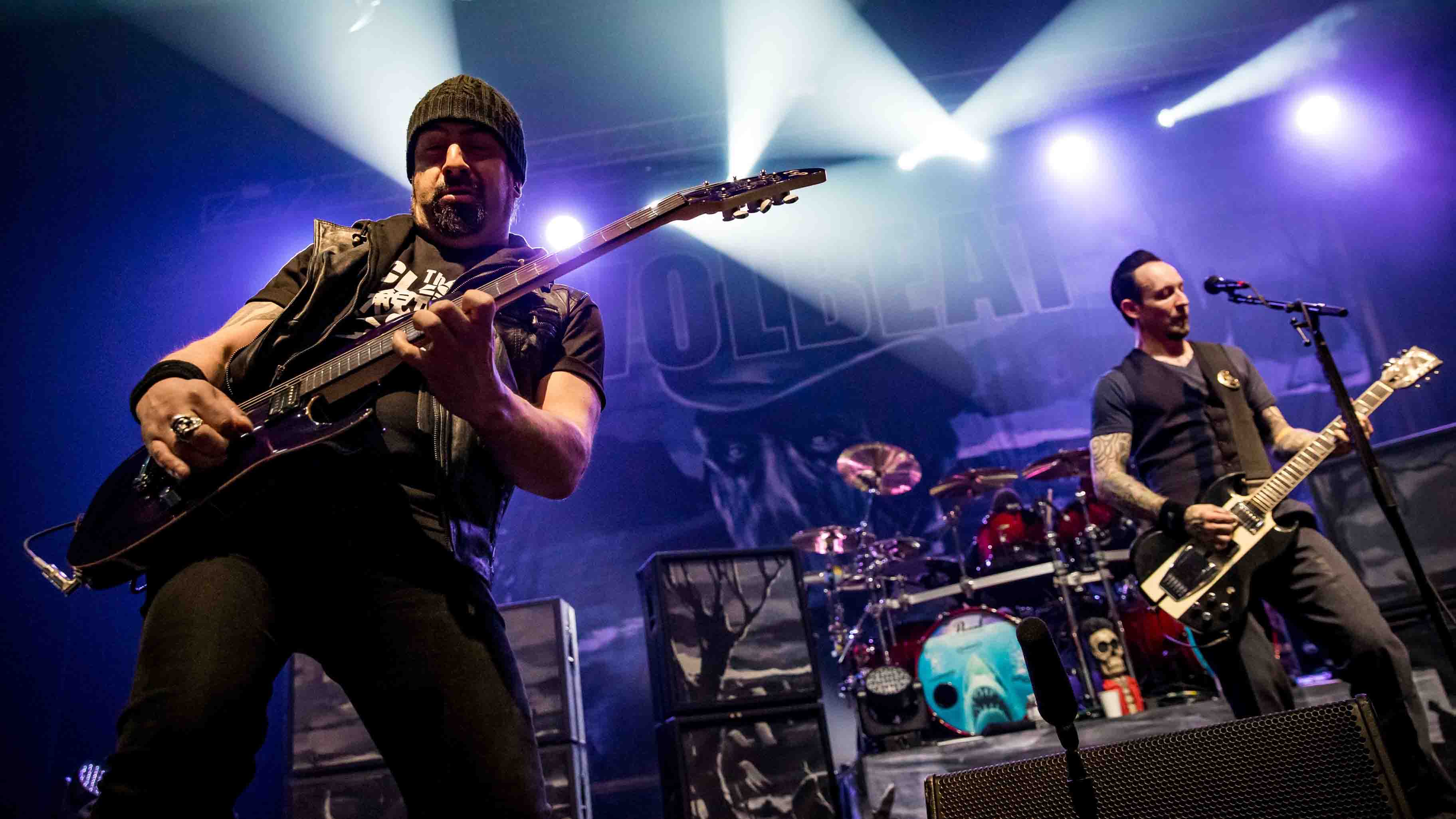
4. Keep an open mind - you might surprise yourself
“Every inspiring musician should keep an open mind to different genres of music. I grew up listening to all sorts, from '50s stuff my Dad listened to Elvis and The Beatles, to jazz. I’m a huge John Coltrane fan! I listen to everything - my music collection is really quite crazy, but I think that’s helped me over the years.
“When I work as a producer, everything seems to go into a memory bank in my head. I’ll come up with something really off-the-wall and a few days realise it was inspired by this weird, obscure track from another genre.
“A lot of guys in rock and metal get very closed-minded… ‘Slayer!’ etc. And those guys shoot themselves in the foot because they’re missing on all this other inspiration that’s out there.
“Dynamics are such a big part, and even Slayer had huge dynamics on Seasons In The Abyss. Something heavy all the time can get numbing after a while, but put something softer in between and it will make the heavy parts sound even heavier.”

5. Write as much as you possibly can
“You should be constantly trying to hone that skill. Try and come up with something that will move people. Don’t just be a shredder on YouTube; try to compose something powerful! It will take time to get the experience, but you gotta keep doing it because it’s a skill that’s always evolving.
“And, let’s not forget, writing and being able to improvise is probably the most important thing when it comes to being a successful musician. You need to experiment as much as you can and be super-creative - some of it might suck, some of it might be okay and some of it might be the best stuff you’ve ever written!”
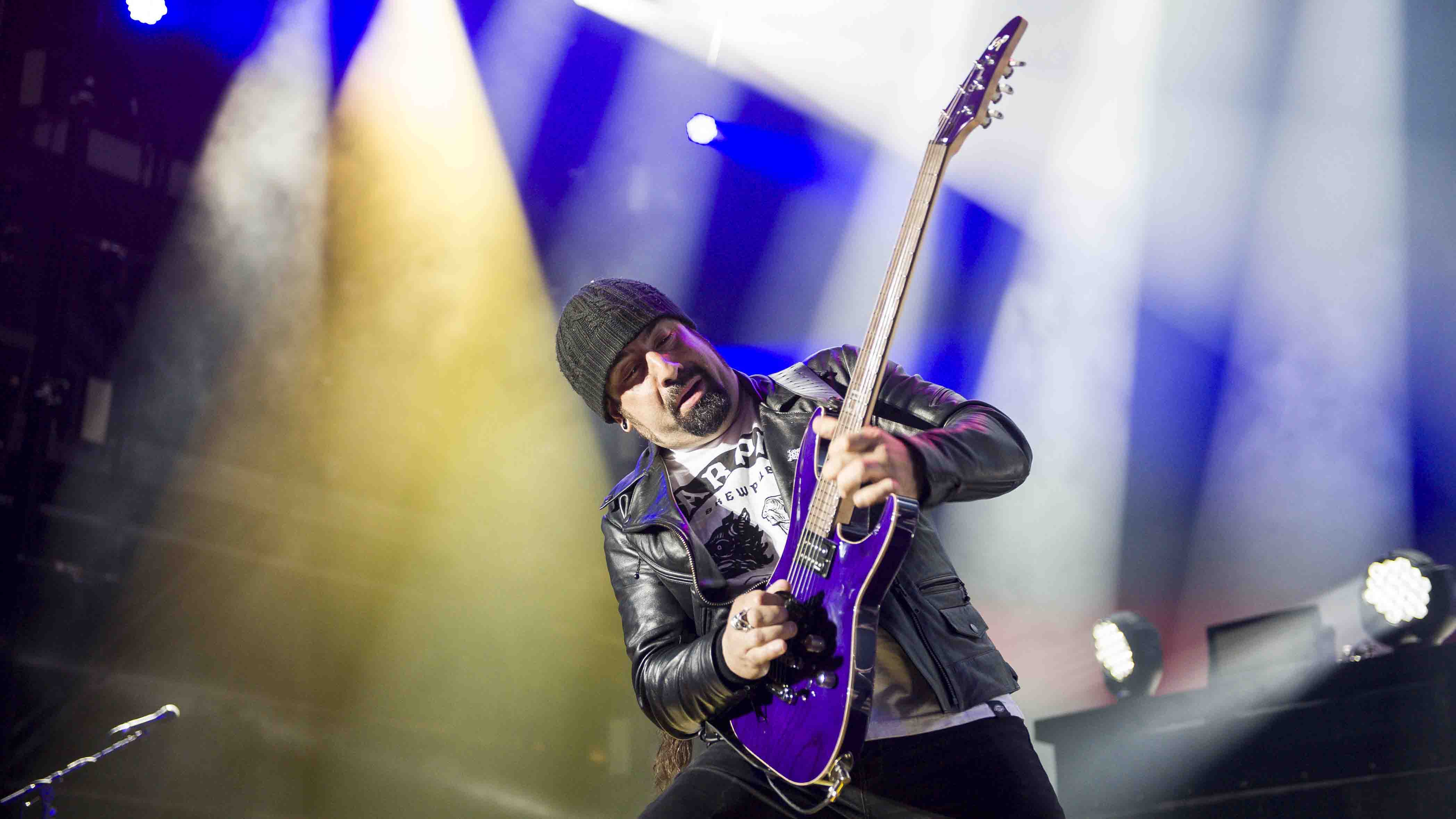
6. Whatever you do, don't injure yourself
“I might need six tips, because warming up is such a huge thing for me. Before any long session, you want to warm up to avoid tendonitis or carpal tunnel, all that stuff which is terrible. I don’t really practise guitar these days - when I was younger I had a lot more time to do that. Nowadays, I feel like it gets me stuck in a box.
“If I keep away from the guitar, everything will feel fresh and inspired to the point where I pick it up and play things I’d never have usually thought of. That’s great and all, but before live shows, I have to warm up and make sure my hands are locked.
“I’ll do some legato stuff, then make sure everything’s synched up and flying, a shot of whiskey and then off we go. If I went out there cold, I’d be worried about doing some longterm damage.”
Don't Miss
Rob Caggiano on leaving Anthrax and finding his voice with Volbeat
Amit has been writing for titles like Total Guitar, MusicRadar and Guitar World for over a decade and counts Richie Kotzen, Guthrie Govan and Jeff Beck among his primary influences. He's interviewed everyone from Ozzy Osbourne and Lemmy to Slash and Jimmy Page, and once even traded solos with a member of Slayer on a track released internationally. As a session guitarist, he's played alongside members of Judas Priest and Uriah Heep in London ensemble Metalworks, as well as handling lead guitars for legends like Glen Matlock (Sex Pistols, The Faces) and Stu Hamm (Steve Vai, Joe Satriani, G3).
